New DuckDuckGo Research Shows People Taking Action on Privacy
Privacy seems to be on everyone’s mind these days, and for good reason. With so many privacy violations happening, it’s no surprise that the news media is covering this critical topic and that people are consistently talking about creepy advertising which feels like it’s listening in on their conversations.
But news coverage and conversations don’t always translate into actually taking action. We wanted to learn more about what real people are doing in their everyday lives to protect their privacy online, so we conducted a survey. The results are clear: not only are privacy concerns widespread, but people are, indeed, taking action.
Our recent survey of a random, representative sample of U.S. adults (not just DuckDuckGo users -- methodology below) found that in the past year a whopping 79.2% (± 2.3) of people have adjusted privacy-related settings on their social media accounts or reduced their social media usage. In addition, almost a quarter of people surveyed (23% ± 2.4) have "deleted or deactivated a social media profile due to privacy concerns." These numbers echo findings from a 2018 Pew Research Center survey.
While Facebook has historically borne the brunt of this exodus, Instagram (owned by Facebook) and Twitter are not immune. Among those who deleted or deactivated a social media account, over a quarter reported they have deleted or deactivated their Twitter (28.5% ± 5.5) and Instagram (30.5% ± 5.6) accounts. And even those who haven't gone that far have made other adjustments:
- 43.1% (± 2.9) removed personal information or posts that they didn’t want the network or others to see.
- 35.0% (± 2.8)made their profile completely private.
- 34.8% (± 2.8) stopped adding location tags to their posts.
- 38.2% (± 2.8) changed which data they allow the network to collect and share about them.
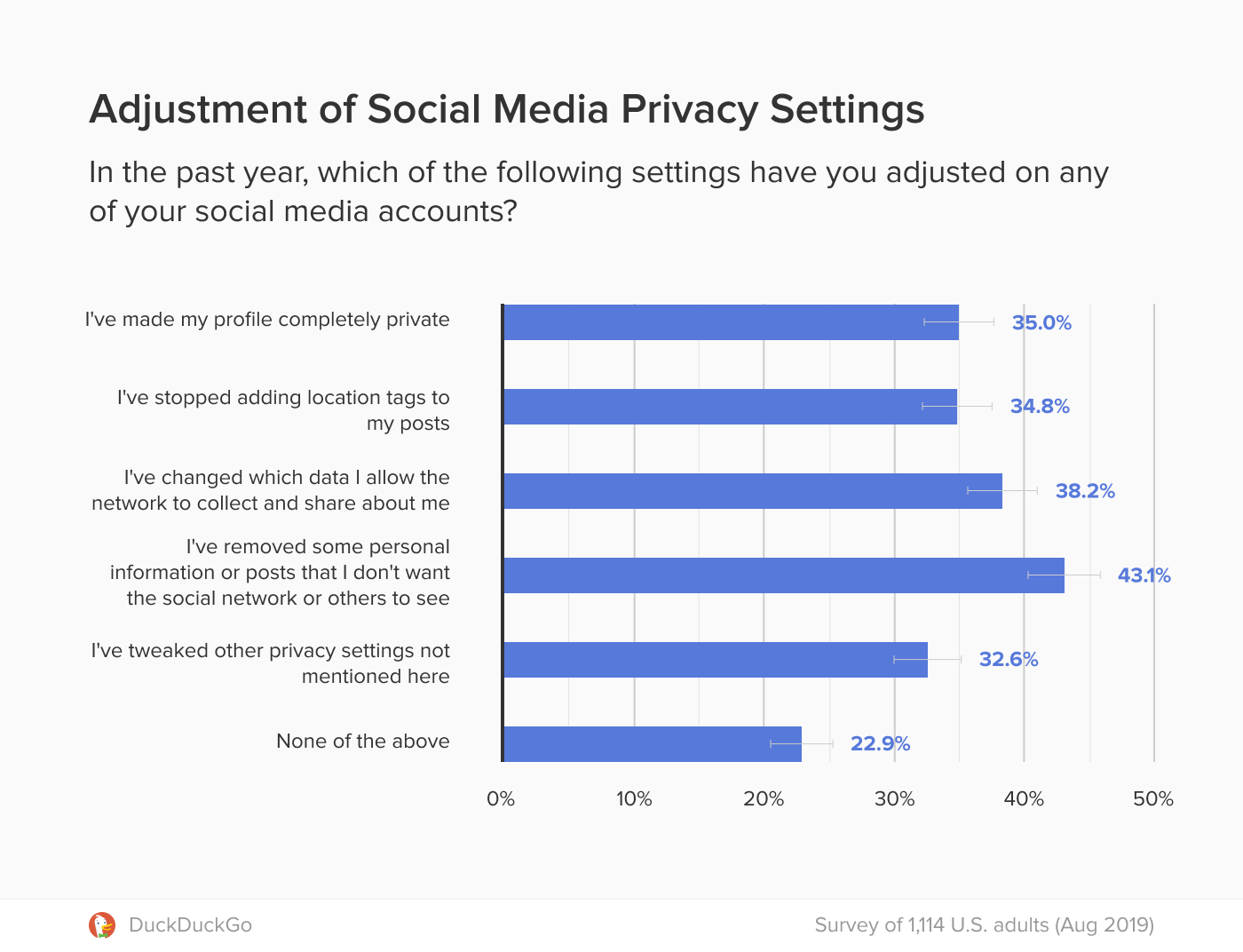
Beyond social media, in the past year, our survey respondents have also done the following to protect themselves online:
- 38.6% (± 2.8) have used a password manager.
- 32.3% (± 2.7) have used the Do Not Track (DNT) setting in their web browser.
- 24.1% (± 2.5) have used a virtual private network (VPN) for non-work related Internet usage.
- 19.1% (± 2.3) have used a tracker blocking app or browser extension.
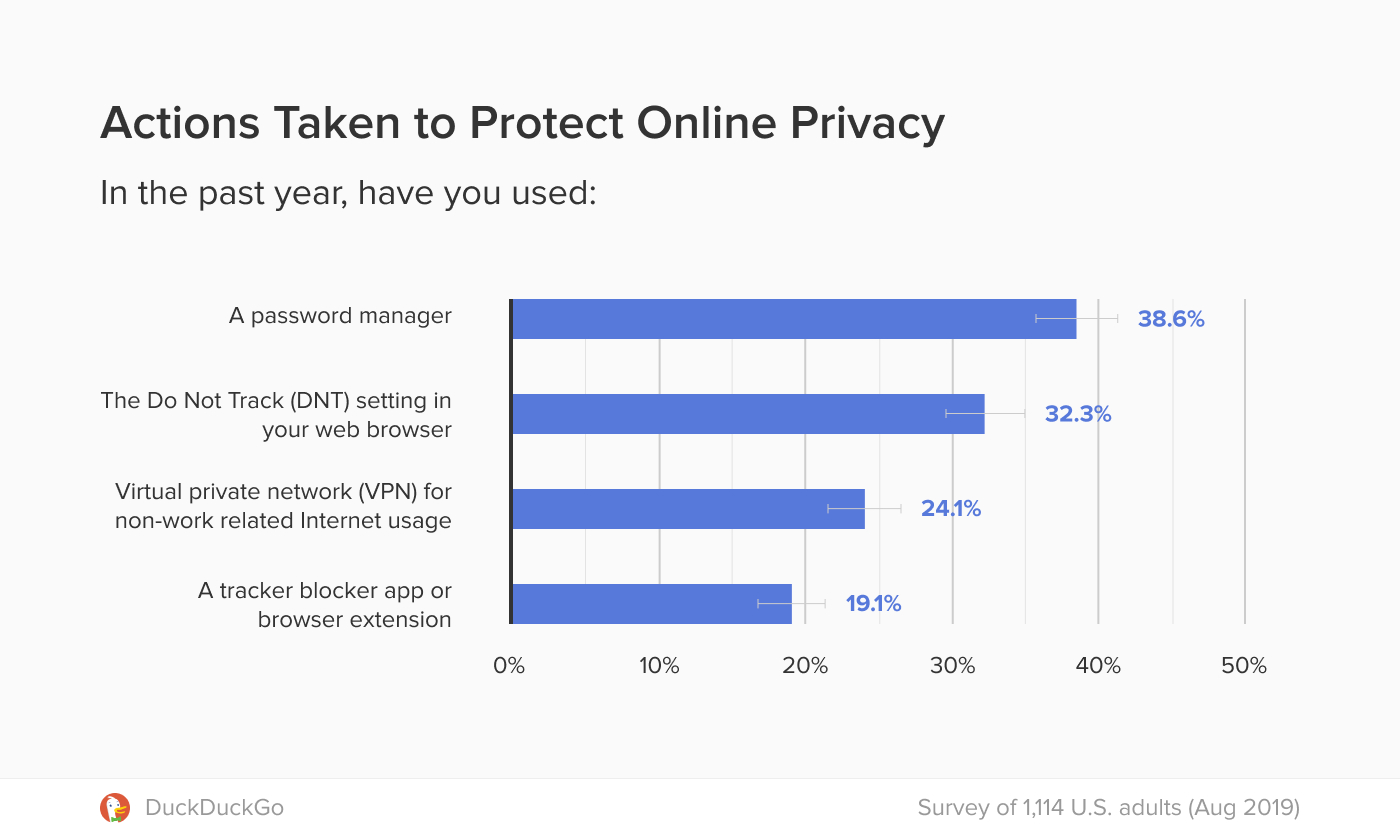
It's encouraging that, beyond simply thinking about privacy, people are taking meaningful actions to improve their privacy protections. The substantial year-over-year growth in DuckDuckGo traffic (up 68%) is further indicative of this shift toward taking action on privacy.
This trend is in lock-step with increasing concerns over privacy. Our research revealed that a sweeping 64% (± 2.8) of respondents believe that privacy options or features are "extremely important" or "very important" when considering their next smartphone, computer, and smart home device purchase.
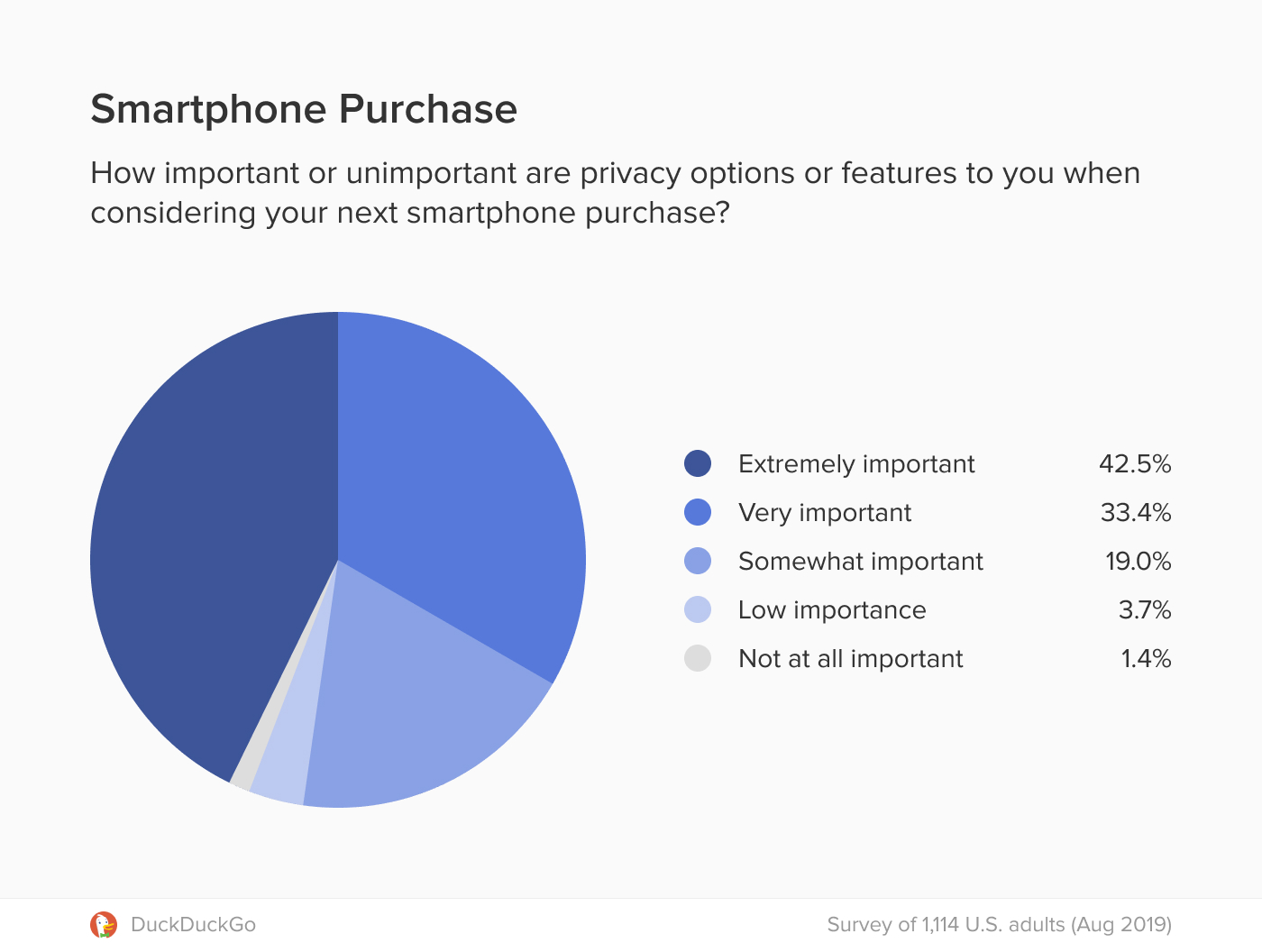
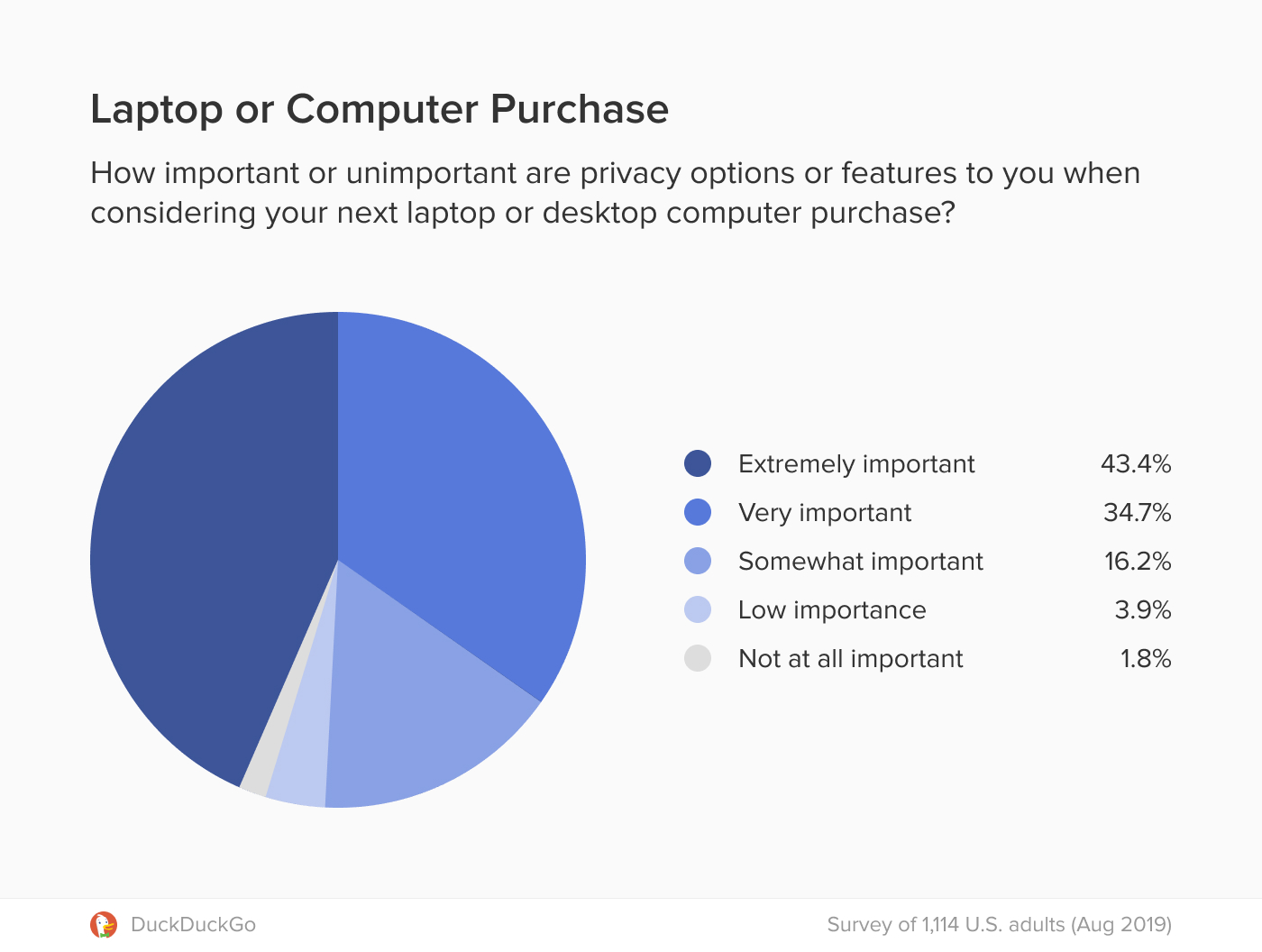
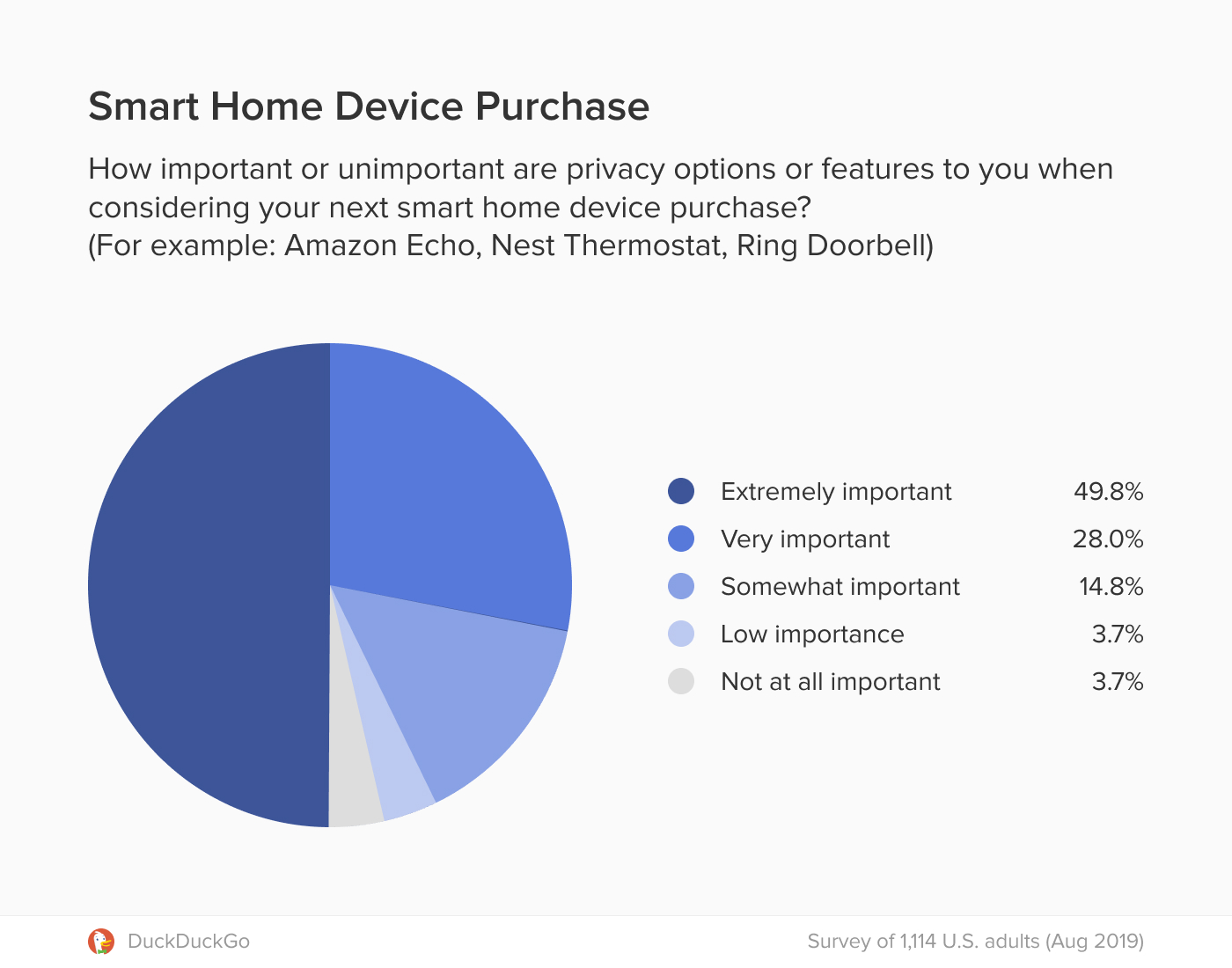
At DuckDuckGo, we are heartened to see such a groundswell of people who feel empowered to take back their privacy online. We began working to set a new standard of trust online in 2008 so, while this trend is no surprise to us, it is undoubtedly reassuring. Until the fundamental human right to privacy is respected by corporations and governments alike, demand for Internet privacy will only continue to grow. And, as it does, we will continue to raise awareness and help people reclaim their privacy through our privacy protection tools like DuckDuckGo Search DuckDuckGo Privacy Essentials (for Firefox / Chrome), and DuckDuckGo Privacy Browser (for iOS / Android).
Methodology
These results are based on the polling of a random sample of 1,114 (August 2019) American adults (18+) via SurveyMonkey’s “Audience” platform, which ensures the demographic make-up of respondents is representative of the U.S. population. Survey respondents were paid and a confidence level of 95% was used for calculating the values above.
For more privacy advice follow us on Twitter, and stay protected and informed with our privacy newsletters.
